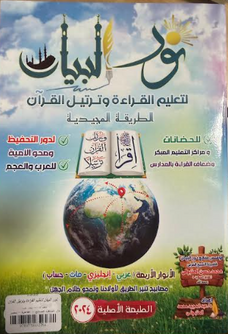10 Practical Tips Every Muslim Convert Needs to Know
Becoming a Muslim is a life-changing decision, and for a Muslim convert, the path ahead can feel both inspiring and overwhelming. You may be learning how to pray, facing questions from family and friends, and wondering how to build your new identity with confidence. Every Muslim convert’s journey is unique, but certain practical tips can help ease the transition, strengthen your faith, and guide you through common challenges.
1. Start with the basics of prayer and belief
One of the first steps for a Muslim convert is establishing the foundations of worship. Begin by learning the shahadah (declaration of faith), the five daily prayers, and the core belief in the Oneness of God. Focus on short surahs and simple duas rather than trying to learn everything at once. Books such as What Do Muslims Say? provide clear guidance on the essentials, helping you start strong without feeling overwhelmed.
2. Learn gradually and avoid burnout
Many Muslim converts feel pressure to learn everything immediately, but Islam encourages steady progress. Take one step at a time, whether that’s memorizing a new surah each month or attending a weekly class. A study published in the Journal of Muslim Minority Affairs (2019) found that gradual integration into Islamic practices led to greater long-term confidence and stronger religious identity among converts. Consistency matters more than speed.
3. Find a supportive community
Community is vital for a Muslim convert. Local mosques, study circles, or online convert groups provide encouragement and mentorship. Being part of a community helps prevent feelings of isolation and allows you to ask questions in a safe space. Connecting with others also reinforces the idea that Islam is not practiced alone but within a supportive network.
4. Differentiate between culture and religion
A challenge many Muslim converts face is distinguishing Islamic teachings from cultural traditions. For example, food, clothing, and language practices may vary between Muslim cultures, but the core principles of Islam remain the same. Resources like Muslim-Christian Interactions: Past, Present, Future can help contextualize Islam beyond cultural boundaries and clarify what belongs to faith itself.
5. Approach family conversations with patience
Family reactions are often one of the most difficult parts of becoming a Muslim convert. Some families respond with curiosity, while others may react with resistance. Maintaining patience, openness, and kindness can make these conversations easier over time. Sharing personal reasons for your choice, along with accessible books like I Became a Muslim, can help bridge understanding.
6. Balance learning with personal reflection
Islam encourages not only study but also reflection. A Muslim convert benefits from setting aside time to reflect on what they are learning. Prayer, journaling, or even reading stories of other converts helps strengthen spiritual understanding. The Metamorphosis of a Muslim shares deep insights into how faith transforms both inner life and outward practice.
7. Build routines around worship
Islam provides a rhythm to life through prayer and remembrance of Allah. For a Muslim convert, creating small routines around worship makes the new lifestyle feel natural. This could be setting a daily reminder for salah, reciting a short dua before meals, or dedicating ten minutes to Qur’an reading each night. A study in the Journal for the Scientific Study of Religion (2021) showed that regular spiritual routines increase both life satisfaction and resilience, making them especially valuable for new Muslims adjusting to change.
8. Focus on halal lifestyle choices step by step
Lifestyle changes such as adopting halal food, modest dress, or avoiding alcohol may feel daunting at first. Instead of pressuring yourself to change everything overnight, take gradual steps. Every small effort counts, and Allah values sincerity. Many Muslim converts report that when changes are taken one at a time, they are more sustainable and less overwhelming.
9. Invest in authentic knowledge
It’s easy to get lost in online information, not all of which is authentic. A Muslim convert should seek knowledge from reliable scholars, local imams, and trustworthy books. Avoid relying only on social media or unverified opinions. Building your foundation with correct sources ensures you don’t develop confusion later. Madinah Media’s collection of resources for new Muslims is designed exactly for this purpose, helping converts avoid misinformation while deepening their understanding.
10. Celebrate your journey and progress
Every step you take as a Muslim convert is worth celebrating. Whether it’s learning a new surah, fasting your first Ramadan, or simply maintaining your daily prayers, recognize your growth. Islam is not about perfection but about striving sincerely. Remember that your journey is personal and that Allah knows your intentions and efforts.
A Muslim convert may face challenges, but each difficulty is balanced with immense opportunities for spiritual growth and renewal. The courage to embrace Islam is itself a powerful act of faith, and with patience, learning, and support, every convert can thrive in their new path.
















